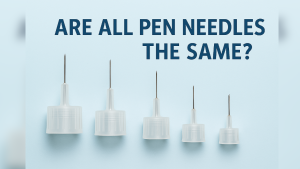The discovery of insulin marked a pivotal moment in medical history, revolutionizing the treatment of diabetes and saving countless lives. The story of insulin’s discovery is a testament to collaboration, dedication, and the relentless pursuit of understanding a complex medical condition.
**Early Understanding of Diabetes:**
Before the discovery of insulin, diabetes was a largely mysterious and deadly disease. The ancient Egyptians were among the first to document the sweet taste of the urine of individuals with diabetes, a notable symptom of the condition. Throughout history, various treatments, including dietary restrictions and herbal remedies, were attempted, but they often provided limited relief.
**Role of the Pancreas:**
In the late 19th century, scientists began to understand the importance of the pancreas in diabetes. Paul Langerhans, a German medical student, first identified clusters of cells in the pancreas that would later be named the islets of Langerhans. These cells were eventually linked to the production of a substance that played a critical role in regulating blood sugar levels.
**Collaborative Efforts:**
The breakthrough in understanding diabetes came through a collaborative effort between multiple researchers. In 1889, German physician Oskar Minkowski and his colleague Joseph von Mering made a significant discovery: removing the pancreas from dogs led to the development of diabetes symptoms. This finding suggested that the pancreas produced a substance vital for regulating blood sugar.
**The Key Discovery:**
The real turning point came in the early 1920s with the work of Frederick Banting, a Canadian surgeon, and Charles Best, a medical student. Banting was inspired to investigate diabetes after reading about Minkowski and von Mering’s experiments. In 1921, Banting and Best began experiments at the University of Toronto, working with dogs to extract a substance from the pancreas that could regulate blood sugar levels.
**Role of James Collip:**
The team faced numerous challenges, including the difficulty of isolating enough of the active substance. Enter James Collip, a biochemist who joined the team to help refine the extraction process. Collip’s contributions were instrumental in producing a more purified and effective form of the substance.
**First Successful Treatment:**
On January 11, 1922, the team conducted a historic experiment on a 14-year-old boy named Leonard Thompson, who was dying from diabetes. They injected him with the newly extracted pancreatic substance, which they named “insulin.” The results were remarkable—Leonard’s condition improved dramatically.
**Nobel Prize and Impact:**
The success of insulin therapy rapidly spread, transforming the treatment of diabetes. In 1923, Banting and Macleod were awarded the Nobel Prize in Physiology or Medicine for the discovery of insulin. Banting famously shared his award money with Best, and Macleod shared his portion with Collip.
**Legacy:**
Insulin’s discovery revolutionized the treatment of diabetes, providing a lifeline for countless individuals who previously faced a dire prognosis. Over the years, advancements in insulin formulations and delivery methods have continued to improve the lives of people with diabetes.
Sources:
1. Encyclopaedia Britannica. (2021). Discovery of Insulin. [Source](https://www.britannica.com/science/discovery-of-insulin)
2. Canadian Medical Hall of Fame. (n.d.). The Discovery of Insulin. [Source](https://cdnmedhall.org/hall-of-fame/hall-of-fame/the-discovery-of-insulin)
3. The Nobel Prize. (n.d.). The Nobel Prize in Physiology or Medicine 1923. [Source](https://www.nobelprize.org/prizes/medicine/1923/summary/)
4. The History of Insulin. (n.d.). Diabetes.co.uk. [Source](https://www.diabetes.co.uk/insulin/history-of-insulin.html)
Be sure to talk to your healthcare professional before making any treatment changes.
For more on Diabetes Health on Allison Medical:
Diabetes Health
Diabetes Education









